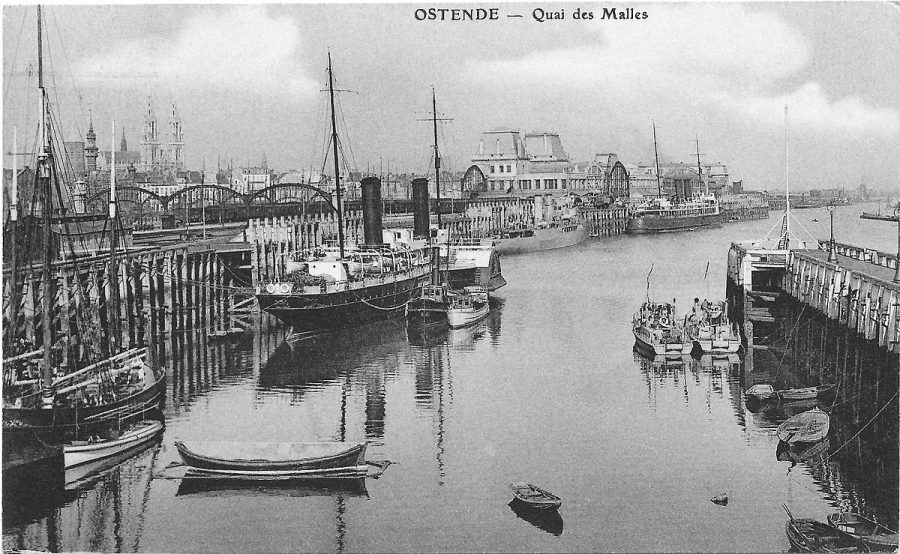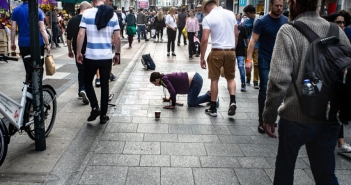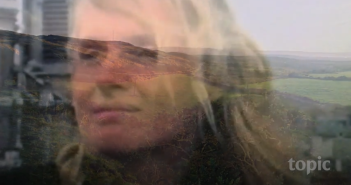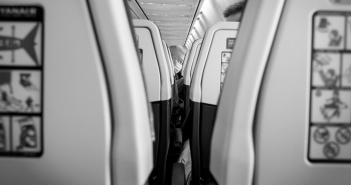Years ago, arriving late one evening in Ostende by train – always my favourite means of travel – from Paris, I went to the first hotel I spotted: The OLD SHAKESPEARE HOTEL. I booked a room and, feeling expansive after a film shoot in Sud Tirol, asked the blonde receptionist for directions to the best restaurant in town. In her arms, she fondled a Pekingese which had the all-seeing eyes of an intelligent chimp. The woman said, with complete assurance: ‘This is the best restaurant.’
When I dumped my bag I went down to the restaurant where the only diners were a man with a cravat and two glamorous women. While I waited for a menu I heard the word ‘chateaux’ and assumed they were haute bourgeois patronising the best restaurant in town. Reassured that the receptionist was not lying, I listened out for other snatches of conversation.
“Florida! Of all places.”
“Its actually quiet in Winter.”
“Do you really like McDonalds?”
“Well, it has Disneyland and Cape Canaveral.”
I switched off and shortly afterwards they left. I was now the solitary diner.
The middle-aged waiter in white handed me the menu. I thanked him and he responded with the simple phrase: “As you please, sir.”
I studied the menu and said, “I’ll just have the best fish dishes you have.”
He repeated, “As you please sir,” and took the menu away, replacing it with the wine list. As my filming expedition had been more than usually successful I chose a rather expensive Pouilly Fuisse.
“As you please, sir”
Over the next hour that was the only phrase he repeated, after my every “Thank you.”
Perhaps that was the only English he had? Once I tried to engage him.
“What do you do when trippers from London ask for fish & chips?”
“We do everything, sir”
And that was his only deviation from the role of perfect waiter. In a small aquarium in front of me there was one lobster and one crab, the latter missing one of its muscular claws. It was pressing itself despairingly against the glass while the lobster hovered. I knew it was going to die, eaten by animals like itself before they were eaten in turn. But I was to be this crab’s final executioner. My uncommunicative waiter delicately fished him out.
There followed at discreet intervals and in stately procession a series of small miracles of the most delicious food I have ever eaten, titbits of shrimp, mussels, smoked eel, halibut, salmon (smoked and fresh on the same plate), oysters (with a special fork), squid. All were prepared lovingly and served in its own unique dish or platter, garnished with a sprig of this or that herb, or slices of lemon impaled.
Having no other than perfunctory human communication available, in my notebook I actually wrote down details of each course, even noting that dishes were all wheeled in on a silver tray. Including, of course, the single clawed crab.
I felt no pity for it, so sated was I in the luxury of perfectly prepared food.
“This is the finest food I have ever enjoyed,” I said to the morose waiter.
“As you please, sir,” he repeated. I must have heard him utter this thirty times, before and after every dish.
The only other people I glimpsed were a young Asian couple in aprons who emerged briefly from the kitchen to look at me and smile shyly. Then they disappeared again. The Pekingese also appeared once, without its owner, to study me inquisitively. Satisfied, he trotted back to report satisfaction, presumably to the handsome blonde at Reception.
The dessert was astonishing in its construction and taste. I have no idea of what it consisted but felt guilty at destroying such a work of art with a fork.
The only detail that let down the side was the that the toothpicks were plastic rather than wooden, but I overlooked this as I sipped on my Hennessy cognac, feeling not in the least bit guilty about the starving masses or the bill to come next morning. It was the best money I ever spent.
Many years later I went to Ostende, but could not find the Old Shakespeare. I wondered whether it existed any longer; maybe I dreamed up the meal? But I could still relive the splendour of it like some old love or a sensuous dream.
This evening, in a vacant and pensive mood, I scribbled down these words about the experience, and wondered idly if the miracle of the Internet could help me, so I Googled the place. Yes, an advertisement suggested it still existed as a centre of gourmet eating. There was even a phone number.
A woman answered my call in Belgianese and said that, at least as far as I could gather, that the hotel/restaurant was no more. I assumed Coronavirus was responsible. “No”, my multilingual son – who was eavesdropping on the conversation informed me; “the building is now apartments.”
Coronavirus is not to blame for everything.
Bob Quinn’s Memoir Monk Manqué has been serialised in Cassandra Voices.




